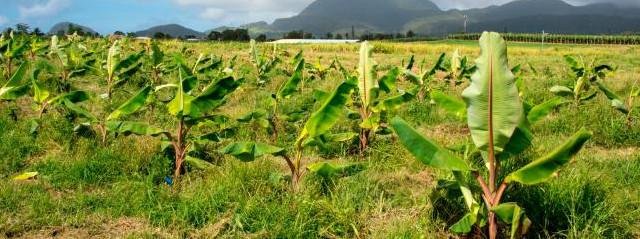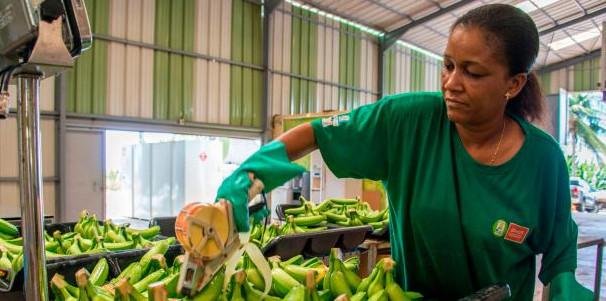Bananas square measure the island group's prime agricultural export, and there's growing awareness that farming practices ought to modification as yields drop and injury from chemical use rises.
Mindful of the diverseness in his banana grove at Capesterre-Belle-Eau on the island of Basse-Terre, farmer Jean-Louis Butel follows the French government's recommendations on property agriculture.
"Environmental activists had USA visit banana groves at nighttime. we have a tendency to saw buggy, and three hundred or four hundred alternative species living within the grove," Butel says.
In recent years, yields in square measureas wherever bananas are adult solely are on the decline.
On the positive facet, attitudes square measure finally dynamic over the employment of the chemical chlordecone, that continues to dirty the soil despite being illegal since 1990.
Those factors combined have inspired Butel to change to a lot of property ways.
Since 2007 "we haven't used any pesticides, or nematicide (against roundworm parasites) and in 2014 we have a tendency to stopped mistreatment herbicides," he says.
New banana is born
Butel has since started rotating sugar cane and bananas, whereas growing covering crops and deploying insect traps.
Overall, banana growers in island have reduced by seventy per cent their use of pesticides, in keeping with Jacques Louisor of the Tropical Technical Institute.
The final hurdle for several farmers is dropping treatments against the flora that causes the leaf recognizing malady referred to as black sigatoka and might cause yields to plunge by 0.5.
Researchers might shortly be ready to offer a solution: scientists at the France-based agricultural analysis centre CIRAD have developed a banana selection that's part proof against the malady.
The selection, dubbed CIRAD 925, includes a slightly totally different style.
It has hit the market in island, and by the tip of the year it might proceed sale within the French terra firma. By 2020, it's going to permit farmers to transition to organic agriculture.
Marc Dorel, a research worker at CIRAD, aforementioned ending the employment of pesticides isn't the sole obstacle that is still to shift to organic production. problems concerning the fertilisation of the crop conjointly stay to be resolved.
And then there's the value.
"Shifting to zero chemical inputs implies higher production prices," he said.
Smaller is healthier
To ensure food security and adapt to temperature change one needs to look on the far side industrial-scale agriculture.
You have to recognise and support little farming, that accounts for seventy to eighty per cent within the Antilles and up to ninety eight per cent in Haiti, aforementioned Harry Ozier-Lafontaine, head of the Antilles and geographic region centre at France's INRA national agricultural analysis institute.
Technical researchers have only too usually unheeded the importance of little farms, seeing them as very little quite subsistence operations.
"But if truth be told they're home to nice diverseness and that we will look for their facilitate within the push for agroecology, as a result of they're a lot of resilient than monoculture farms," Ozier-Lafontaine explained.
INRA, that desires island to transition to Associate in Nursing agroecology model, is developing animal feed mistreatment native product, during a bid to cut back reliance on imports.
The centre is additionally researching the shift towards a a lot of restorative and property circular economy, so as to create higher use of resources.
In order for island to thrive, thus too should its Caribbean neighbours.
A dramatic increase in recent years of protoctist} algae off the coast of Brazil, connected to temperature change, deforestation and pollution, has sent tourists fleeing because it unfold to Guadeloupe's shores.
INRA is functioning with many partner teams to show the matter around.
"We have a project to upgrade the Sargassum bacciferum and to use it otherwise, by turning it into compost and animal feed," Ozier-Lafontaine aforementioned.

